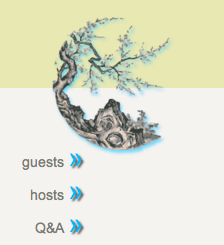
When you click the “edit” button for the first time on Wikipedia, you might be surprised to find a screen full of wiki markup, the language used to format text, images, and references in Wikipedia articles. Once you’ve mastered the technical bits, you’ll then need to navigate your way through the policies, guidelines and common practices that the community has developed over 11 years of collaborative editing.
You may be dismayed if you find that what you thought was a small change to an article turns into a lengthy or heated debate with strangers. Although you are encouraged to “be bold,” (one of the 5 pillars of Wikipedia is that editors should ignore all rules and not worry about making mistakes!), learning to do things the “Wikipedia Way” can mean having your contributions removed and your user talk page covered in warning messages within hours of clicking that “edit” button.
If you’ve found yourself confused or discouraged by the editing process, we’d like to invite you to sit down, kick off your shoes, and join us for a proverbial cup of tea in our beautiful new Teahouse.
The Wikipedia Teahouse is a forum on Wikipedia that aims to foster a feeling of community for new editors from the outset by introducing them to peers and experienced Wikipedians in a many-to-many support space designed specifically for new users. At the Teahouse, you will be able discuss issues and get answers to questions about the editing process, hopefully helping support you on the journey from your first edit to your 1000th edit.
While the Teahouse complements existing support systems for new editors on Wikipedia– such as help desks, welcoming committees, and mentorship programs — it is specifically focused on addressing the scarcity of female editors throughout the Wikimedia projects. According to recent data, only 9 percent of active Wikipedia editors are female. In surveys and conversations with women, some common reasons given for not editing Wikipedia include being discouraged by having edits reverted, not feeling confident in their contributions, not enjoying argumentative or confrontational tones of discussion, and a preference for experiences on other sites that emphasize social relationships and a welcoming tone.
The gender gap and editor retention in general are particularly important for the Wikimedia Foundation. By 2015, we have set a strategic goal to more than double both the overall number of active editors on all Wikimedia projects and the percentage of female contributors. If the Wikimedia movement is to succeed in providing free access to the sum of all human knowledge, we think the projects must include more active female editors.
With this project, we’re experimenting with a support system that may appeal to editors (of both genders!) who would be better served by a more social learning experience. The Teahouse is meant to be visually warm and welcoming, so the design incorporates color and pictures of participants to convey the feeling of a populated, friendly community space. We’ve tried to make it easy to use and easy to navigate, because new editors already have a lot of documentation to read elsewhere on Wikipedia. And we’re using the power of invitation in our approach: we’re reaching out to new editors to personally invite them to a place just for them and encourage peer support for those who might otherwise feel alone.
Wikimedia Community Fellow Sarah Stierch and Research Fellow Jonathan Morgan are leading the 3-month pilot with help from Fellowship Program staffer Siko Bouterse, designer Heather Walls, and 23 experienced volunteer Wikipedians who serve as Teahouse hosts. We’re also grateful to volunteer developers Kaldari and Werdna for some technological magic. During the course of the pilot, we’ll be working with the existing community and new editors to refine the experience and measure any effects on new editor retention. For more information on the Teahouse, see our FAQ. We’ll keep you updated with what we learn!
Meanwhile, the Wikipedia Teahouse is full of hosts who can’t wait to welcome you and answer your questions about editing Wikipedia. Calling all new editors and anyone who has ever wanted to edit: please stop by for a cup of tea, introduce yourself, and visit our Q&A board. We’re looking forward to meeting you!
Thank you,
Siko Bouterse and Sarah Stierch

Can you help us translate this article?
In order for this article to reach as many people as possible we would like your help. Can you translate this article to get the message out?
Start translation